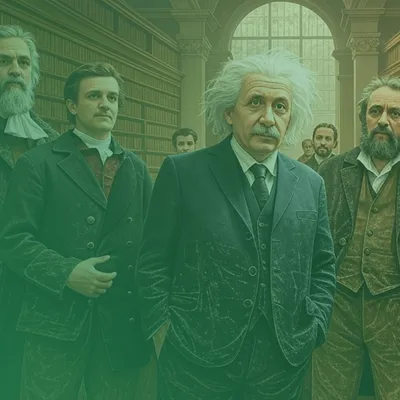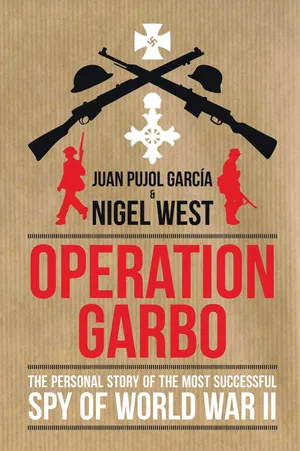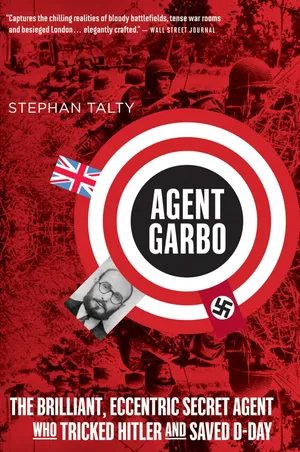The Unlikely Spy
When World War II engulfed Europe, Juan Pujol García seemed an improbable candidate to become one of history’s greatest spies. Born in Barcelona in 1912 to a middle-class family, Pujol had drifted between careers—hotel manager, poultry farmer, and cinema owner—failing at most. His only military experience came during the Spanish Civil War, where he had deserted from both sides, disgusted by the extremism he witnessed.
Yet this unremarkable man possessed extraordinary qualities that would prove invaluable in espionage: a vivid imagination, remarkable memory for detail, and profound hatred of totalitarianism. As Nazi Germany swept across Europe, the 29-year-old Spaniard decided he needed to make a difference.
A Bold Beginning
Pujol’s journey into espionage began with audacity that bordered on naivety: he approached the British Embassy in Madrid, offering his services as a spy against Germany. The British, understandably suspicious of an untrained civilian with no connections or experience, politely declined his offer.
Undeterred, Pujol conceived an extraordinary plan. If the British wouldn’t accept him directly, he would prove his worth by first becoming a German spy, then offering his services to the British as a double agent.
In early 1941, he approached the German Embassy in Madrid, presenting himself as a pro-Nazi Spanish government official with diplomatic connections and the ability to travel to Britain. The Germans, eager for intelligence and less discerning than their British counterparts, accepted his offer.
The Art of Deception Begins
What the Germans didn’t know was that Pujol had no intention of ever traveling to Britain. Instead, he established himself in Lisbon, Portugal, and began fabricating intelligence reports using information gleaned entirely from public sources: news articles, library reference books, cinema newsreels, and outdated tourist guides.
With just a map of England, an English dictionary, and guidebooks, Pujol created elaborately detailed but completely fictional intelligence. To explain his extensive knowledge, he claimed to have recruited a network of sub-agents throughout Britain—a network that existed entirely in his imagination.
Despite occasional errors that would have been obvious to anyone familiar with Britain—like misunderstanding the currency system or referring to nonexistent drinks—German intelligence was impressed by the volume and detail of Pujol’s information.
British Intelligence Takes Notice
While Pujol was building his fictional network for the Germans, British counterintelligence was intercepting his radio transmissions through their codebreaking operation at Bletchley Park. Initially confused by reports about troop movements and ship convoys that didn’t exist, they began an intensive search for what they believed was a dangerous Nazi spy in Britain.
When they couldn’t locate this spy, they realized something unusual was happening. Through diplomatic channels, they eventually connected the mysterious transmissions to the Spaniard operating from Lisbon who had once offered his services at their embassy.
In April 1942, the British Secret Intelligence Service (MI6) approached Pujol in Lisbon. This time, they were very interested in his services.
Operation Garbo Takes Shape
Pujol was smuggled into Gibraltar and then flown to Britain. His wife and young child followed later. Installed in a safe house in Hendon, north London, Pujol began his formal career as a British double agent under the codename “Garbo”—named after actress Greta Garbo for his remarkable acting abilities.
Under British guidance, specifically that of his handler Tomás Harris, the fictional Garbo network became more sophisticated. Harris was the perfect handler—half-Spanish and fluent in the language, he was also an art expert with a keen eye for detail. Together, they crafted an incredible volume of intelligence material—by the end of the war, the Garbo network had sent over 500 letters and 2,000 radio messages to the Germans, averaging around 2,000 words per message.
The key to the operation’s success was timing. Pujol would often send warnings to the Germans about Allied operations, but deliver them too late to be useful—establishing his credibility while ensuring no actual damage to Allied efforts.
The Network of Ghosts
Over time, Pujol’s fictional network grew to include 27 completely fabricated characters, each with their own personality, background, and motivations:
- A Venezuelan in Glasgow who recruited sub-agents of his own
- A Welsh nationalist angry at English wartime regulations
- A Portuguese commercial traveler with access to docks
- An Indian poet with fascist sympathies who traveled across Britain
- A fanatical Nazi sympathizer in the War Office
Pujol kept extensive notes to maintain consistency in his reports, creating an intricate web of fictional relationships and information sources. He created expense reports for his invented agents, requested specific payments for their services, and even had them develop personal problems that occasionally interfered with their intelligence gathering—adding a layer of authenticity that made the network seem real.
By 1942, he had convinced the Germans that he had traveled to Britain and established an efficient spy network. In reality, he remained in London, having never visited the UK before being brought there by British intelligence, and had initially spoken virtually no English.
Operation Fortitude: The Greatest Deception
By early 1944, Allied forces were preparing for the invasion of Nazi-occupied France. The success of the D-Day landings would depend not just on military might, but on convincing Hitler that the main attack would come at Pas-de-Calais—the narrowest point of the English Channel—rather than the actual target of Normandy.
This massive deception plan, codenamed Operation Fortitude, would be the Garbo network’s finest hour. Pujol and Harris began laying the groundwork months in advance, sending reports suggesting that Allied forces were concentrating in southeastern England, opposite Calais.
The centerpiece of the deception was the entirely fictional First United States Army Group (FUSAG), supposedly commanded by General George Patton. This phantom army, complete with inflatable tanks, dummy aircraft, and false radio traffic, existed only on paper and in carefully staged photographs.
The Germans were completely convinced of the Garbo network’s reliability, even awarding Pujol the Iron Cross for his service to the Reich—making him one of the few people to be decorated by both sides in the war.
D-Day and the Final Deception
The ultimate test came on June 6, 1944, when Allied forces landed in Normandy. In the pre-dawn hours, as the first Allied troops were landing, Pujol made urgent efforts to contact his German handlers. His radio operator was mysteriously “unavailable,” preventing him from sending an immediate warning about the invasion.
When he finally established contact, hours after the landings had begun, he sent a message that was technically accurate but strategically misleading: he reported the Normandy landings but characterized them as a feint—a diversion from the real invasion that would come at Pas-de-Calais with the fictional FUSAG.
The German high command, including Hitler himself, believed Pujol’s assessment. As a result, they kept their powerful Fifteenth Army stationed near Calais, waiting for an invasion that would never come, rather than sending reinforcements to Normandy where they were desperately needed.
For two crucial weeks after D-Day, while Allied forces established their beachhead and pushed inland, the Germans continued to expect the “real” invasion at Calais. By the time they realized their mistake, it was too late—the Allies had gained a foothold in France that would eventually lead to the liberation of Western Europe.
The success of Pujol’s deception can be measured in lives saved. Military historians estimate that had the Germans correctly identified Normandy as the main invasion site and positioned their reserves accordingly, Allied casualties could have been catastrophically higher, potentially even forcing a retreat.
Disappearing Act
For his extraordinary service, Juan Pujol García was awarded the Member of the Order of the British Empire (MBE). Having already received the Iron Cross from Germany, he became one of the few people decorated by both sides in the conflict.
But his greatest recognition would remain secret for decades. To protect him from Nazi reprisals, British intelligence circulated a story that Pujol had died of malaria in Angola in 1949. In reality, he was helped to escape to Venezuela, where he lived quietly under an assumed name, running a bookstore and later a gift shop.
The Man Who Reappeared
For nearly four decades, the world believed Juan Pujol García was dead. The man who had created an army of ghosts had himself become one. But in 1984, the story took another remarkable turn.
British author Nigel West, researching a book on Allied intelligence operations, became intrigued by the Garbo case and suspected Pujol might still be alive. After an extensive search, he tracked down the former spy, now 72 years old and living in Venezuela.
The revelation that Garbo was still alive caused a sensation in intelligence circles. Pujol was invited back to London for the 40th anniversary of D-Day, where he was reunited with some of his former colleagues and finally received public recognition for his extraordinary contribution to the Allied victory.
In the years following his “resurrection,” Pujol gave interviews and assisted with books about his experiences. He expressed no regrets about his deception, maintaining that he had acted out of deep moral conviction against totalitarianism.
Juan Pujol García died on October 10, 1988, in Caracas, Venezuela, at the age of 76—having lived to see his extraordinary contribution to history acknowledged and celebrated.
Tomás Harris, his brilliant handler, had died decades earlier in a car accident in Spain in 1964. Their partnership remains one of the most successful intelligence collaborations in history.
An Enduring Legacy
The story of Juan Pujol García—Agent Garbo—stands as perhaps the most remarkable individual intelligence operation of World War II. A civilian with no formal training or prior experience created a fictional network so convincing it influenced strategic decisions at the highest levels of the Nazi regime, including Hitler himself.
The success of the Garbo deception rested on several factors: Pujol’s extraordinary imagination and memory for detail, the guidance of British intelligence (particularly Tomás Harris), and the Germans’ willingness to believe what they wanted to hear—a psychological vulnerability that Pujol and his handlers exploited masterfully.
The legacy of Operation Garbo extends beyond World War II. The techniques pioneered by Pujol and Harris established principles of deception that would influence intelligence operations throughout the Cold War and beyond. The case is still taught in intelligence agencies worldwide as the gold standard of strategic deception.
Perhaps most remarkably, this world-changing deception operation was initiated not by governments or military leaders, but by a private citizen—a failed chicken farmer from Barcelona who decided he could not stand by while fascism engulfed Europe.
In an age of industrial warfare, when battles were decided by tanks, planes, and massive armies, Juan Pujol García demonstrated that sometimes the most powerful weapon is a convincing story—and that one determined individual can indeed change the course of history.


